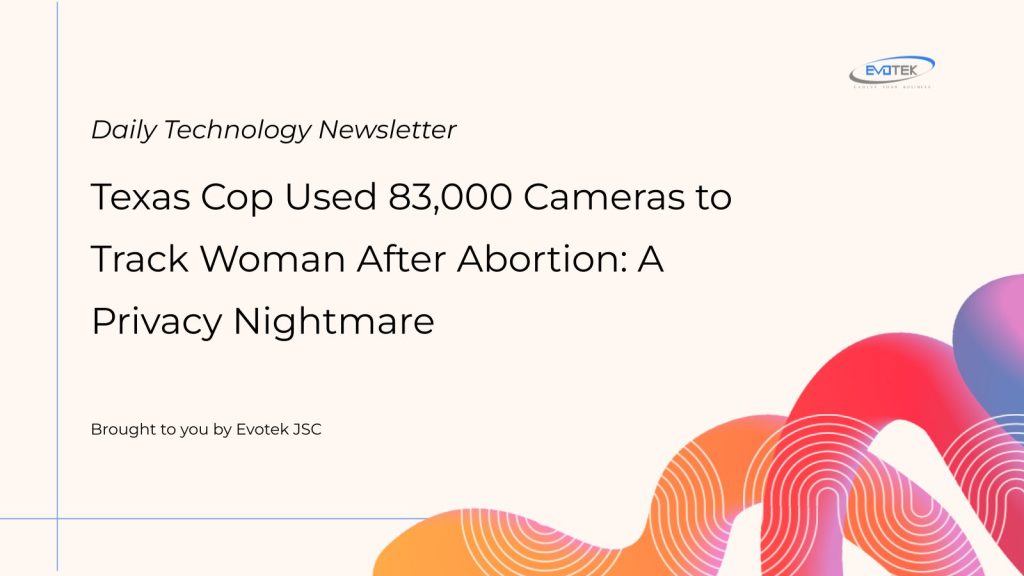In a shocking exposé, 404 Media reveals a disturbing instance of surveillance abuse in Texas. A sheriff’s office leveraged data from over 83,000 automated license plate reader (ALPR) cameras to track a woman suspected of obtaining an abortion. This incident highlights the growing threat to personal liberties in a post-Roe world.
The officer reportedly searched data from 6,809 camera networks managed by surveillance firm Flock Safety. The search included states where abortion is legal, such as Washington and Illinois. The stated reason for the search was simply: “had an abortion, search for female.”
Following the Supreme Court’s Dobbs decision in 2022, states gained the power to criminalize abortion. Texas has effectively banned abortion, but the inclusion of states where abortion is protected in this surveillance dragnet raises serious questions about cross-state data sharing and the erosion of reproductive rights.
The Electronic Frontier Foundation (EFF) has long warned about the dangers of mass surveillance. Their Atlas of Surveillance documents the widespread deployment of ALPRs. Worryingly, many agencies share this data with minimal oversight, creating a nationwide surveillance network.
While this case explicitly targeted abortion, other searches in audit logs often lack specific reasons. This makes it difficult to detect other potential abuses targeting protected rights. The EFF emphasizes that surveillance infrastructure, initially intended for purposes like finding stolen vehicles, is increasingly being used to target individuals seeking reproductive healthcare.
ALPRs: From Finding Cars to Tracking People
ALPRs capture license plate data, logging the time and location of vehicles, creating detailed movement profiles. Companies like Flock Safety offer law enforcement access to vast databases, potentially allowing them to monitor locations like abortion clinics or create “hot lists” of vehicles.
Compounding the problem is the ease with which investigations can be initiated. Reports indicate that acquaintances often report suspected self-managed abortions, which can quickly escalate into a nationwide manhunt with ALPR technology. Anti-abortion activists have also been known to document license plates at reproductive health facilities, data that can now be easily cross-referenced with ALPR databases.
An EFF investigation in 2023 revealed that California police departments were sharing driving profiles with out-of-state agencies, despite state laws prohibiting such data sharing with states hostile to abortion rights. This demonstrates the potential for data from “safe” states to be used against individuals in states with restrictive laws.
The Incompatibility of Surveillance and Reproductive Freedom
The EFF argues that reproductive rights and mass surveillance cannot coexist. Systems designed for routine purposes are now being weaponized to enforce politically charged laws. The organization calls for lawmakers to enact strong state laws limiting data sharing, ensuring oversight, and dismantling these surveillance pipelines.
It’s time for decisive action to protect privacy and reproductive freedom.
Related Issues:

 日本語
日本語 한국어
한국어 Tiếng Việt
Tiếng Việt 简体中文
简体中文